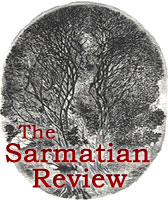| This Issue | Back Issues | Editorial Board | Contact Information |

From the Editor
September 2001
Volume XXI, No. 3
This issue confronts Polish humanities on many levels, from poetry to the much-contested general interpretations. History is patient of many interpretations, and in spite of their proliferation, new interpretations have to be advanced, if only to avoid being snowed under by ridiculous interpretations offered by ignoramuses. History is always contested, and a neglect to conduct an interpretive dialogue results in a massive imposition of identity on those who live by such neglect. The neglectful groups (nations, ethnic groups, religious groups) are inevitably ghettoized in conditions of the open society. The divergences between their self-interpretation and interpretations imposed by others grow so large that such groups lose their public presence. A generous supply of self-interpretations that are made accessible to others has to be provided in order to avoid such ghettoization.
This issue reminds readers that in modern times, history has become interpretation, often a literary interpretation in a Gramscian fashion, and protests to the contrary will not change the situation. What can bring about change is the tortoise's persistence; for hares are often enthusiastic but give up when faced with persistence.
This brings us to an interview with W. Martin, guest editor of the issue of Chicago Review containing a selection of works of Polish literature written in the 1990s. What a bright point of light in the landscape of Polish Studies in America, and how well it speaks of the vitality of Polish literature. Martin deserves much appreciation for putting together this volume (reviewed in the April 2001 issue of SR and still available for purchase). Professor Piotr Wilczek likewise deserves much praise for being the spiritus movens behind this interview. Wilczek taught at the University of Chicago and at UIC at the time when the interview was conducted. It is thanks to his initiative that it now appears on our pages.
Indeed, during his three-year tenure at various American universities, Wilczek did more for Polish and non- Germanic Central European Studies in the United States than many a tenured professor over his/her lifetime. He organized conferences, brought together scholars, published articles, suggested areas of research to colleagues and students, supervised or contributed to countless projects. That no permanent U.S. academic position has so far been found for this exceptional scholar speaks volumes about American Polonia's lack of support for Polish studies and its willingness to let polonistyka be defined by those who would drive it to the boundaries of a caricatured marginality.
One should note the various Polish and other non-Germanic Central European organizations that waste time and resources on entertainment and related self-congratulatory activities in their own respective ghettos. In that regard, the Kosciuszko Foundation remains a welcome exception.
An analysis of Tomasz Jastrun's poetry (in Daniel Bourne's translation) by Professor Leonard Kress reminds us that the personal and the political do mix in Central Europe. The United States is one of the few countries where such a relationship is rare. A point to consider when interpreting works from one of those 'tense' countries that cannot afford the 'relaxed' atmosphere in which literary creativity is couched in the United States.
Finally, we present a poignant poem by Helen Bajorek MacDonald on her parents' martyrology. Her family was among the hundreds of thousands of Polish families deported or imprisoned by the Soviets in the Soviet-occupied part of Poland during the years of Soviet-Nazi friendship, 1939-1941. In the January 2001 issue of SR, we published her poem on how she lost her mother: when the cattle wagon train stopped for a few minutes at some Russian station, her mother went out to barter clothing for food. The train left before she managed to get back, and her daughter's last impression of her was her desperate face as she ran behind the train trying to get on board. In this issue, the loss of another deportee is mourned.
The remainder of the issue consists of book reviews representing a variety of points of view and dealing with a variety of books, from scholarly volumes to imaginative literature. This issue has more book reviews than any past issue.
Back to the September 2001 issue
The Sarmatian Review
sarmatia@rice.edu
Last updated 9/17/01